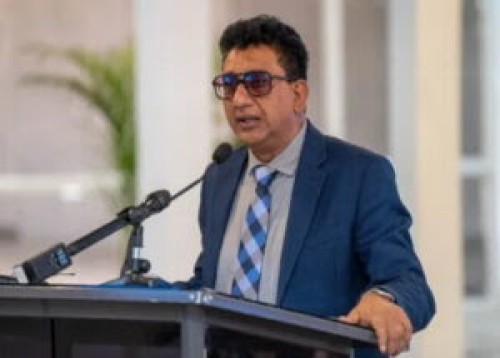GEORGETOWN, Guyana – Guyana's Attorney General says the country’s justice sector is undergoing significant transformation with the introduction of alternative dispute resolution methods and streamlined plea bargaining, aiming for greater efficiency and adaptability.
 Attorney General and Minister of Legal Affairs, Mohabir Anil Nandlall, SCAttorney General and Minister of Legal Affairs, Mohabir Anil Nandlall, SC, addressing the opening ceremony of the Restorative Justice Practitioners Training, said that several new pieces of legislation have been presented in the National Assembly to achieve this.
Attorney General and Minister of Legal Affairs, Mohabir Anil Nandlall, SCAttorney General and Minister of Legal Affairs, Mohabir Anil Nandlall, SC, addressing the opening ceremony of the Restorative Justice Practitioners Training, said that several new pieces of legislation have been presented in the National Assembly to achieve this.
He told participants that this would have massive benefits for the population.
Last year, the government tabled the Arbitration Bill and the Criminal Procedure (Plea Discussion, Plea Agreement, Plea Assistance Agreement) Bill of 2023, taking another tangible step in providing faster and more amicable alternatives to traditional litigation.
Arbitration allows disputing parties to reach an agreement with the help of neutral arbitrators, potentially saving time and money.
The bill will allow for top-class arbitrators and companies offering arbitral services to set up in Guyana.
“Our country’s commercial sector is expanding like never before and therefore we have to incorporate into our legal system new and innovative measures that will allow this growth,” Nandlall said.
The government said that the revamped Criminal Procedure Bill is designed to tackle the backlog of cases currently straining the system.
It will allow for plea agreements to be made between defendants and state prosecutors before a guilty verdict, expediting resolutions and freeing up court resources for more serious cases.
With proper implementation, the legislation creates wide avenues for the defendant and the prosecution to sit outside of a trial environment and work out a plea deal that will satisfy the basic tenets of the community’s sense of justice.
But Nandlall said that these solutions do not apply to serious offences such as murder and human trafficking.
“We are a society that believes in strong punishment, and none of these measures are intended to dispense with strong punishment in appropriate cases,” he said.


